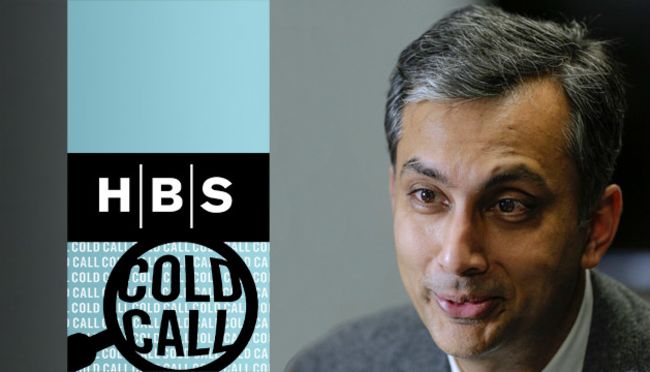
- 19 Nov 2018
- Working Paper Summaries
Lazy Prices
The most comprehensive information windows that firms provide to the markets—in the form of their mandated annual and quarterly filings—have changed dramatically over time, becoming significantly longer and more complex. When firms break from their routine phrasing and content, this action contains rich information for future firm stock returns and outcomes.

- 01 Sep 2016
- Cold Call Podcast
Behind Apple's Tax Situation, an Unprecedented Financial Policy
The European Union recently hit Apple with a $14.5 billion tax bill, but that’s hardly the first or worst financial challenge the technology giant has faced. Mihir Desai explains the financial wiring behind the inventors of the iPhone. Open for comment; 0 Comments.

- 08 Oct 2015
- Working Paper Summaries
Market Reaction to Mandatory Nonfinancial Disclosure
How does the equity market respond to the adoption of mandatory nonfinancial disclosure? Research by George Serafeim and colleagues.

- 25 Jun 2009
- Working Paper Summaries
Why Do Countries Adopt International Financial Reporting Standards?
Why do some countries adopt the European Union (EU)-based International Financial Reporting Standards (IFRS) when others do not? To expand our understanding of the determinants and consequences of IFRS adoption on a global sample, HBS professor Karthik Ramanna and MIT Sloan School of Management coauthor Ewa Sletten studied variations over time in the decision to adopt these standards in more than a hundred non-EU countries. Understanding countries' adoption decisions can provide insights into the benefits and costs of IFRS adoption. Key concepts include: Countries with high quality corporate governance systems and more powerful countries are less likely to adopt IFRS. There are network benefits to IFRS adoption, i.e., the likelihood of IFRS adoption for a given country increases with the number of IFRS adopters in its geographical region and with IFRS adoption among its trade partners. As more countries adopt the international standards, the relative import of network benefits from IFRS adoption (over direct economic benefits) are likely to increase. Similar effects might be seen in the adoption of accounting methods and standards, and of corporate governance best practices by firms and jurisdictions. Closed for comment; 0 Comments.
- 20 Dec 2006
- Op-Ed
Investors Hurt by Dual-Track Tax Reporting
What corporations report in profit to the IRS and what they report to shareholders are often two different numbers—sometimes wildly so. That's why the IRS and Securities and Exchange Commission are proposing that companies publicly report taxes paid—and Professor Mihir Desai thinks this is only a first step. Key concepts include: Corporations are allowed to report different profit figures to capital markets and to tax authorities, creating large, unexplained gaps that potentially confuse investors. The IRS and SEC have jointly called for a simple but controversial proposal: Companies would be required to disclose how much they pay in taxes, an amount not now decipherable from public filings. More ambitious alternatives should be considered, including making corporate tax returns public, an end to the dual-book system, and a lower corporate tax rate on profits reported to capital markets. Closed for comment; 0 Comments.
- 13 May 2002
- Op-Ed
A Cure for Enron-Style Audit Failures
In an opinion piece in the Financial Times, Harvard Business School professor Jay Lorsch argues for legislation to create an independent, self-regulatory organization to oversee accounting firms. Enron, he says, is not an isolated incident. Closed for comment; 0 Comments.

Want to Prevent the Next Hospital Bed Crisis? Enlist the SEC
After two years of COVID-19, many hospitals still haven't figured out how to manage the overwhelming wave of patients that flood ICUs during each surge. Regina Herzlinger and Richard Boxer offer a novel solution. Open for comment; 0 Comments.